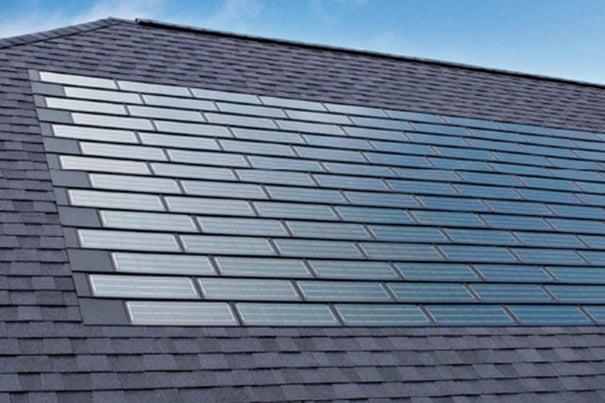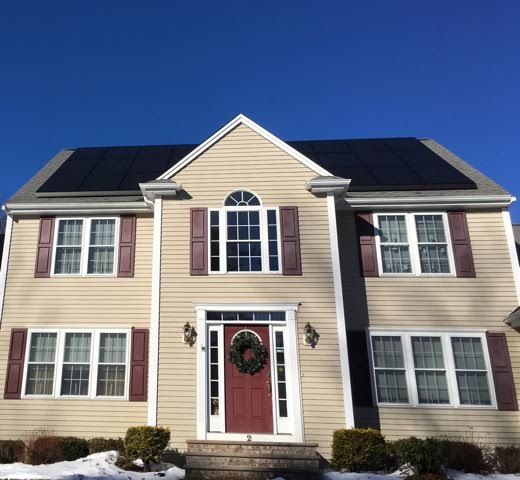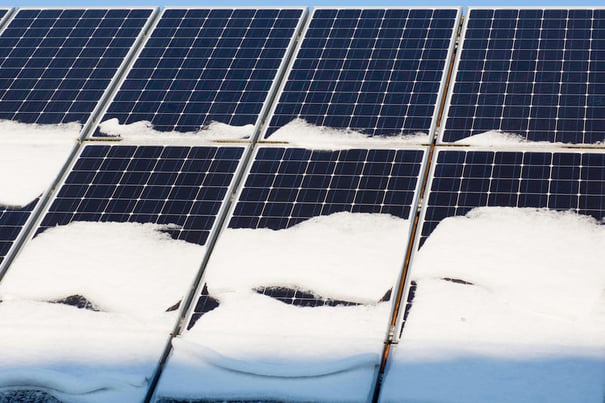Driving around your neighborhood, you’ve probably noticed an increasing number of roofs sporting new solar panels. Last year, solar accounted for nearly 40% of all new electric capacity installations. This was the first time in history that solar beat natural gas, coal, and wind!
The ability to harness the power of the sun has caused a massive shift in the way we think about energy. As with any newer innovation, there’s a lot of misinformation about solar floating around. Here are some of the most common solar energy myths:
Solar Energy Myth #1: Solar shingles are a new innovation
If you've been staying up to date with solar and renewable energy news, you probably heard about Tesla's solar glass shingles. Also known as building integrated photovoltaics (BIPV), these shingles are designed to gather solar energy and look more like traditional roofing materials. What most people don’t know is that solar shingles have been around for quite a long time. In fact, commercial solar shingles were first sold over a decade ago.
While they may claim to offer a more pleasing aesthetic, there are some downsides. Not only are solar shingles more expensive than regular panels, but they also lack the efficiency needed to produce the best energy output. When you’re ready to save with solar, shingles may not provide the best ROI.

Solar Energy Myth #2: With solar, you still have power after a blackout
Solar systems that are tied to the electric utility's grid won’t provide power during a blackout, that is unless you have installed a battery storage bank. The components of your system will constantly adjust to maximize efficiency and regulate energy flow. Instead of storing excess power, this means your system will put it back onto the grid and credit your utility bill. If the grid power goes out, then the solar system output will shut down immediately as a safety precaution, which is enforced by electrical code requirements.
When blackouts occur, it’s either because maintenance workers are performing scheduled work in your area or because something disrupted the power supply. The system has to be shut down for the safety of the maintenance workers who are accessing the lines near your home.
Solar Energy Myth #3: Solar panels will ruin my curb appeal
There is no shortage of new solar innovations designed to help tackle the stigma that solar panels look unattractive. Take for example the Tesla shingles mentioned in myth #1 or even a MIT startup that developed a unique "solar skin" product to mimic asphalt, clay, or other designs.
While these may all be viable options with varying degrees of pros and cons, sometimes the answer to aesthetics really boils down to the company you work with. Things like loose wires, visible conduit, overhanging or misaligned panels, etc. can make a dramatic impact on the final appearance. Your best bet is to find a company who takes pride in their work, proudly shares photos of their previous installs, and mentions key words like "symmetry" upfront.

Solar Energy Myth #4: Solar Brokers help you save time and money
As solar becomes increasingly popular, companies create new models to sell and unique tactics to break into the industry. Solar Brokers position themselves as independent agents that act as a middleman between homeowners like yourself and solar companies.
In most cases, the requirements for becoming a solar broker boils down to sales experience, a valid license, and the ability to close deals. When it comes to making an investment this big, you don't want to rely on someone who lacks the technical knowledge and engineering expertise needed for a successful install.
Brokers sometimes also receive commission on material sales. Unfortunately, this could lead to a potential conflict of interest. You might walk away wondering if you got the best deal or just the one that is most profitable to the broker.
Solar Energy Myth #5: Solar won't work with our New England winters
You might be surprised to learn, but cold temperatures actually improve solar panel output. Higher ambient temperatures reduce the efficiency of solar panels, so cold sunny days are great solar production days. Also, vibrant, white snow reflects light and improves photovoltaic performance. Any lost days in the winter are more than made up for during the long, sunny days of summer.
All of the solar panels we use are manufacturer guarantee to withstand the weight of snow and durable enough to stand up to heavy storms.

There will probably always be new myths about solar. The most important way to stay up-to-date is to find a trusted resource for information. With the large investment you make in residential solar power, it’s best to ask questions until you feel confident in your decision.
Do you have a solar energy myth you want us to bust or are you ready to take the next step toward solar power for your home? Contact BCX Energy today for a free solar assessment to find out what options are right for you.







